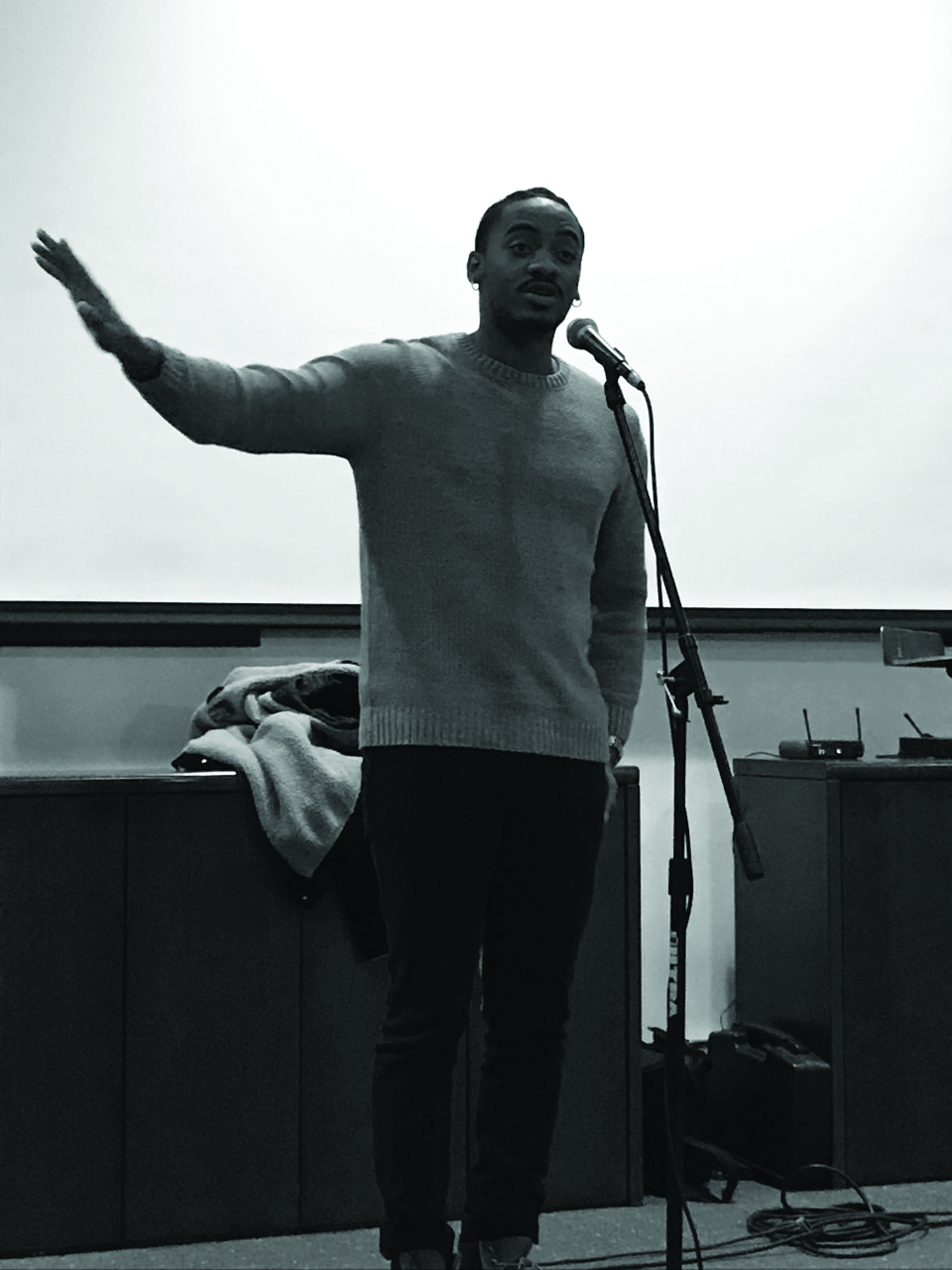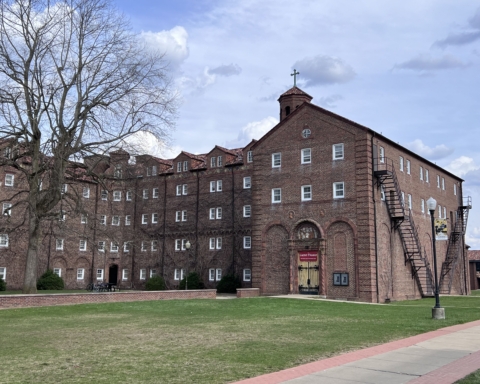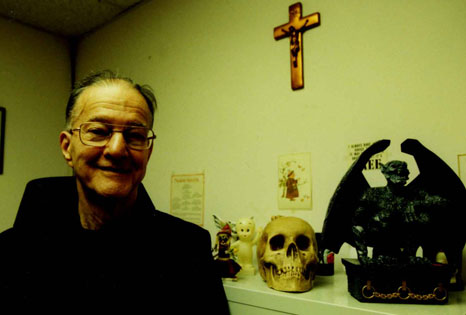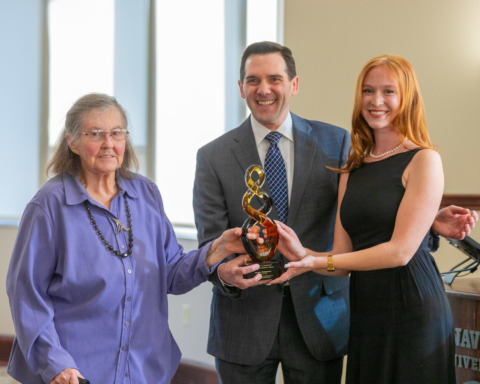Events call out racism and strenghten English skills
Two poetry events were held on campus this week,giving students the opportunity to partake in the creative expression of others along with enhancing their own writing skills.
On Tuesday, Residential Living and Campus Activities Recreation and Leadership (C.A.R.L.) sponsored an event in the Trustee’s Room in Doyle Hall where Harlem-raised Jaylene Clark Owens and Philadelphia-based Dave G performed, accompanied by performances from the on-campus poetry club, Chattertons. Tim Walter, junior psychology major; Joe Giglio, senior history and professional and creative writing double major; and Dahron Wells, senior political science major, moderated the event.
Robbie Chulick, the assistant director for C.A.R.L., said, “I hope students got a better understanding of what a slam poetry and spoken word event is and how students and performers can combine many different elements of performance, writing, and audience participation into one unique event. ”
Members of Chattertons opened the event with readings of their own poetry, followed by the main guest performers. Topics ranged among the poems, but the overwhelming theme of the night was the reality of racial injustices today in America.
Owens performed next, emphasizing her Harlem roots and unapologetic blackness. She also touched on how being female affects her daily life, especially when interacting in the workplace. Within her writing, she used interesting techniques during her performance.
In her poem “My Voice, My Choice,” she altered her voice based on black stereotypes versus how they feel they have to sound to be professional. In another poem, she used “black ice” as a play on words to later address “black guys” and the perceived dangers of both.
Dave G had a more humorous approach to how he’s dealt with racism and uncertainty in his life, touching on his experience as a pastor’s child. Adding music to two of his poems, he ranged in performance styles, giving a rap feel to some while keeping others true to spoken-word.
He also incorporated innovative aspects to his performance, such as acting out a phone conversation with an automated voice, and in another poem, he had the use of a video to give a visual component.
Today, the department of English will host a poetry event, bringing students from Olean High School to campus.
“This workshop, funded by an arts education grant from the Tri-County Arts Council and paid for in part by the New York State Council on the Arts, will bring seniors from Olean High School together with current Bonaventure students to share ideas, questions and of course, their writing,” Dr. Megan Walsh, chair of the English department, said. “I’m thankful to Sally Ventura, a Bonaventure English alumna, at the Olean High School for proposing this grant and for doing so much of the hard work involved.”
“It is important, I think, that the workshop is conducted on the Bonaventure campus because it assures our students that we are very serious about supporting their artistic pursuits,” said Sally Ventura, the English Department Chair for Olean High School. “Additionally, it has been established that the more often high school students are on college campuses, the more likely it is that they will consider college as a post-secondary goal.”
Sean Thomas Dougherty, a nationally recognized poet currently living in Erie, Pennsylvania, will participate in a hands-on workshop with the students. Students will be creating poems to be submitted to The Laurel, the student-run literary magazine on campus.
“Where would we be without creative expression? There’s an argument for the need for young people to find ways of productively communicating their love, fear, anger, frustration, etc.,” Walsh said. “The most important reason is that learning about poetry also teaches us how to be better users of the English language and to be better communicators with each other. A lot of people don’t realize how much grammatical know-how is at work behind the best poems.”
Both of these events happening within the same week may be coincidental, but they do show the importance and relevance of poetry not only in the past, but today more than ever.
“If we don’t give people a way to speak about their complex inner thoughts, we run a very real risk of creating a society where people feel alienated from one another, and that has dangerous implications for the future,” Walsh said.
By Amina Golden-Arabaty, Staff Writer
goldena15@bonaventure.edu






